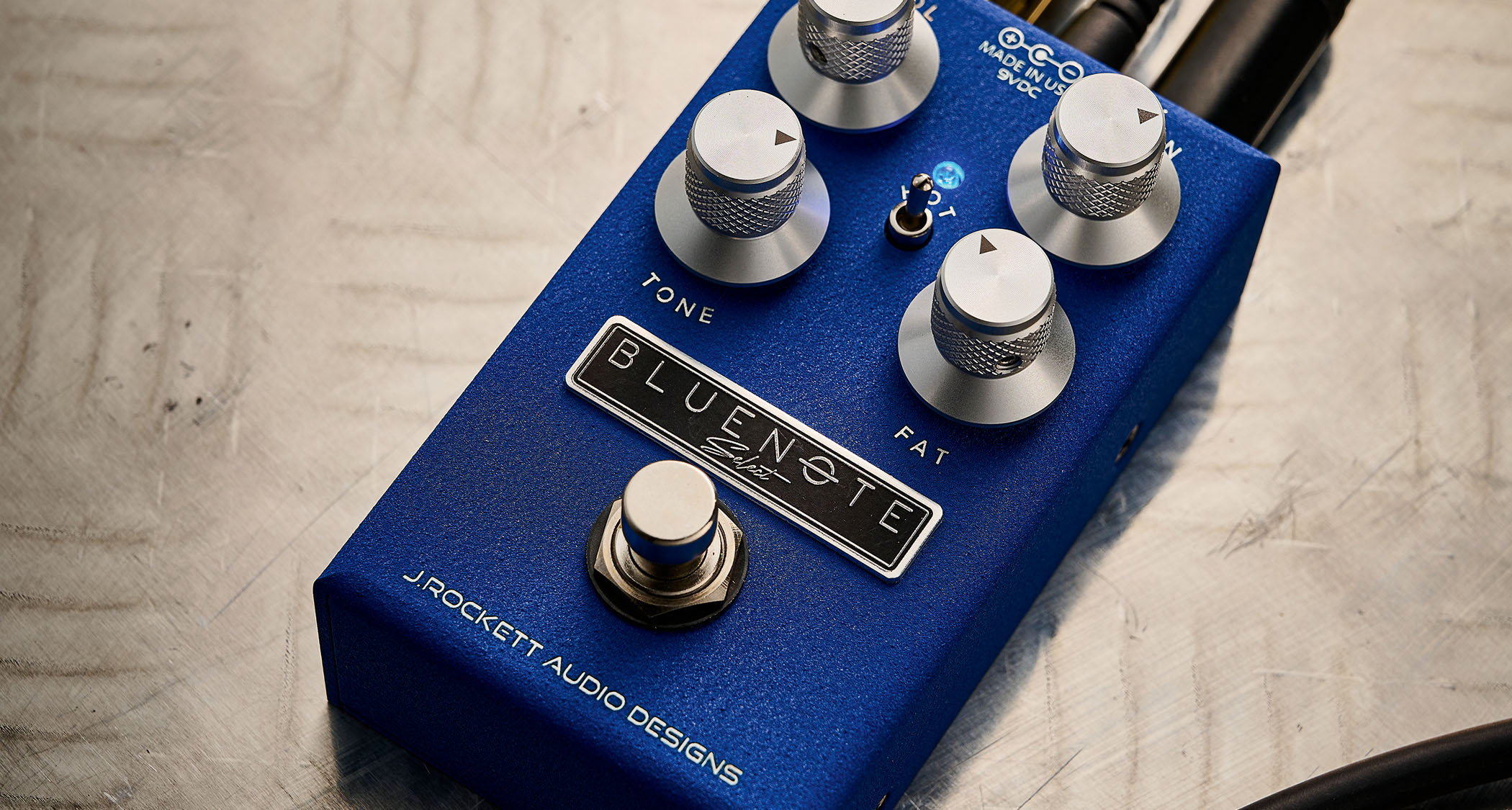“The inability to play music or access words was quite frightening, but it was interesting… It became a focal point to write around”: Ben Howard feared the worst after suffering two mini-strokes. He returned with his most adventurous album yet
Inspired by John Martyn, Echoplexes and open C tunings, the UK guitar maverick describes his playing as a “car crash of whatever suits me and whatever use I can get out of it” – but even he couldn’t have anticipated just how weird things would get…

When singer-songwriter Ben Howard appeared on the scene a little over a decade ago, scoring a top 10 hit with his debut album, Every Kingdom, his music felt special because it had an uncanny ability to transport those who listened directly back to the greatest summer they’d ever had.
His idiosyncratic “pick and go” acoustic style and percussive lap tapping techniques intrigued general listeners and guitarists alike, and set him apart from the main crop of sing-along strummers.
Two Brit Award wins in 2012 made him a household name, and his homespun brand of beachy fireside folk pulled whopping festival crowds around the globe. But, never entirely at ease with his burgeoning pop star status – let alone the prospect of being forever typecast as Devon’s answer to Jack Johnson – pandering to popular demand and making another Every Kingdom has never been on Ben’s agenda.
A boundless musical curiosity, “enticed and excited by little audio moments”, has led him into fresh sonic territories with every subsequent release. 2014’s I Forget Where We Were saw the first introduction of electric guitars. 2018’s Noonday Dream embraced more ambient textures and experimental sounds, and Ben first began “sticking guitars through Moogs” during the recording of 2021’s Collections From The Whiteout.
“I’m very instinctive and impulsive when I play and not necessarily as traditional as people think I am,” he says, speaking from the comfort of his sofa where he keeps a somewhat approximately tuned Martin Dreadnought Junior within reach for casual noodling purposes. The guitar is one of only a handful of acoustics to actually make it onto his latest studio effort, a beautifully splintered folktronica masterpiece titled Is It?
“I usually play in open C, and this had just sort of slowly dropped through the years that it’d been sat on the sofa,” he demonstrates. “It had never been tuned – just to itself – and it had been slowly falling through the bottom parameters of what an acoustic should do. It ended up making a feature on the record, just because it had this real scooped sound with a really bright top end, not much in the mid-range and then really low bottom strings.”
I’m very instinctive and impulsive when I play and not necessarily as traditional as people think I am
Happening upon “tidbits” of sonic interest such as this is what kick-starts Ben’s creative process, and although other acoustic elements do feature on Is It?, they do so in what he describes as a “textural” way, rather than as a fundamental means of self‑accompaniment.
Get The Pick Newsletter
All the latest guitar news, interviews, lessons, reviews, deals and more, direct to your inbox!
“You can’t beat 12-string overdubs and the tactility of frets on acoustics,” he maintains “I love that kind of stuff and they really fill a space.” Then there’s what he calls “the John Martyn steer” – aka running an acoustic guitar through a Big Muff and into a vintage Echoplex EP-1 in order to transfigure its natural woodiness almost beyond recognition.
But the wider landscape of Is It? is one of dreamy delay-drenched electrics and spliced up guitar rhythms, generated by feeding single notes and chords through a Boss SL-2 Slicer Audio Pattern Processor and into a Moog synthesizer.

“The guitar has always been an instrument that is my access to melodies,” explains Ben. “Then, the technology that goes with guitars is my access to random generated melodies and random generated audio that then triggers my brain into thinking there might be a song in there.”
This latest 10-song collection is also packed with electronic elements, heavily manipulated vocal samples, programmed beats, synths and strings. But Ben maintains, with a slight smile, that “it is very much fundamentally a guitar record… it’s just that the guitars are doing weird things.”
For example, the intriguingly warped rhythm track that runs throughout Life In Time was created by playing his trusty ’60s Fender Jazzmaster though “a kind of glitch modulation, with a Slicer playing a rhythmic guitar pattern, and then pushing the mix up so actually a lot of the guitar is submerged.”
He explains: “I’d say I’m a rhythm guitarist in the strictest sense in that I’m just trying to find rhythmic patterns and things that propel a song.” But he adds that “anything that can make the guitar more active and me do less” is always a bonus.
Elsewhere on the album, he reached for a right-handed Silvertone, despite being a left-handed player, because he’s “always excited by how a fingerpick comes back when you play it upside down,” and also took a dive into the discombobulating world of reverse delays, as you’ll hear on tripped out track Richmond Avenue.
“My guitar playing has always been a kind of car crash of whatever suits me and whatever use I can get out of it,” he says. “I’m not a great romantic in that traditional sense. It’s about what noises these things can make, what purpose they can serve and what they can do for the imagination.”
For what is undoubtedly his most imaginative offering to date, Ben also enlisted the expertise of indie/electronic producer and DJ Nathan Jenkins, aka Bullion, to help fulfil his vision of making Is It? completely distinct from his previous efforts. More experimental for sure, but also “jovial, light, melodically fresh and not tied down in the murky depths of too many guitars.”
But a darker and altogether more disconcerting set of circumstances in the months leading up to the recording session at Le Manoir de Léon in south-west France also profoundly affected the way the record took shape.
In March 2022, while lazing in his garden, Ben suddenly found himself unable to think clearly, form sentences or speak for almost an hour. A month later, the same thing happened again and he later found out that he’d suffered two Transient Ischemic Attacks, otherwise known as mini-strokes.
As someone whose livelihood depends on the artistic arrangement of chords, words and melodies, the idea that a tiny blood clot could cause him to lose all powers of articulation represented a very real and very surreal threat.
“Obviously, the inability to play music or access words was quite frightening, but it was interesting at the same time,” admits Ben, with an air of morbid fascination. “It shook me to the point of really making me dig at why you make music, what we are when we lose all faculties and lose these layers of ourselves. It became a real sticking point in the writing process and a focal point to write around.”
The stuttering, vocal sample-heavy Total Eclipse is perhaps the most overt reference to what happened that spring. But, focusing lyrically on the “definitely troubling” time also had the slightly perverse effect of helping to ensure that Is It? emerged sounding like the “happier, more fluid and brighter record” Ben had always intended to make.
“If I have heavier subject content, then I like to make a dreamier song, and if I have lighter content, I like to make it kind of a dirge,” he laughs. “It’s almost like a panic button. If the song’s too happy, then I need to produce it melancholy, and vice versa.” The paradoxically upbeat Couldn’t Make It Up is a shining example of just that.
Often, the push and pull of the delay, or how you play into the delay is the drama in the song. It’s the fun of delays, but in a band setting, it can be agony
Now, with months of touring stretching out ahead of him, Ben’s focus turns to “trying to figure out how rhythmic guitar tracks and drums can coexist” live on stage.
“Sometimes that’s the great tragedy of the guitar parts playing a lot of the rhythm tracks and delays,” he says. “They do tie you to some sort of tempo quite strictly. Often, the push and pull of the delay, or how you play into the delay is the drama in the song. It’s the fun of delays, but in a band setting, it can be agony for everyone else when they’re trying to listen to what you’re doing!”
- Is It? is out now via Virgin.
Since graduating university with a degree in English, Ellie has spent the last decade working in a variety of media, marketing and live events roles. As well as being a regular contributor to GuitarWorld.com, she currently heads up the marketing team of a mid-scale venue in the south-west of England. She started dabbling with guitars around the age of seven and has been borderline obsessed ever since. She has a particular fascination with alternate tunings, is forever hunting for the perfect slide for the smaller-handed guitarist, and derives a sadistic pleasure from bothering her drummer mates with a preference for wonky time signatures.
“I always felt like that record could have been better if we had worked on it some more”: Looking for a blockbuster comeback album, Aerosmith turned to Van Halen producer Ted Templeman. For Joe Perry, it served as a learning experience
Guitar World Discussion: Who is the most underrated guitar player of all time?











